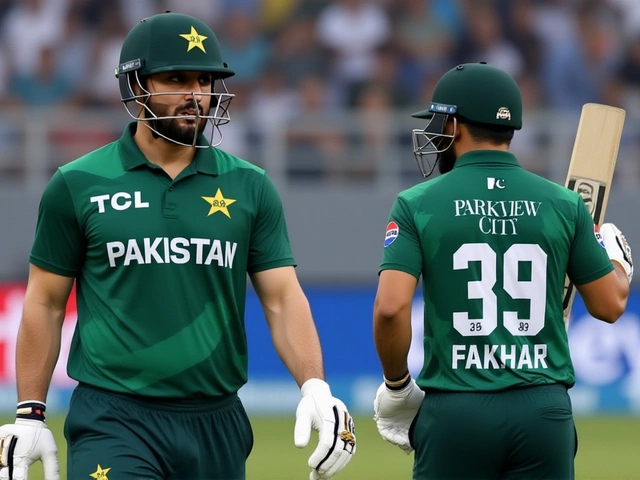The Nations Championship isn’t just another tournament — it’s the death knell of rugby’s old hemispheric divide. Set to debut in July 2026, this new global competition will replace the scattered Autumn Internationals with a unified, six-match season for every top-tier nation, split evenly between the southern and northern hemispheres. The opening fixture? South Africa hosting England in Durban — a seismic clash that signals the end of isolation and the birth of true global rugby.
Why This Changes Everything
For decades, northern and southern hemisphere teams played each other like distant relatives meeting only at funerals — once a year, awkwardly, in November. The Six Nations (England, Ireland, Scotland, Wales, France, Italy) and The Rugby Championship (South Africa, New Zealand, Australia, Argentina) operated in parallel universes. Now, they’re merging into one. Each team will play three matches in July — during the southern hemisphere’s winter, when conditions are ideal — and three in November, in the north. It’s not just scheduling. It’s structural revolution.
World Rugby has been quietly laying the groundwork for this since 2023. The 2025 Autumn Nations Series — still labeled as such for transitional clarity — includes matches like Italy vs. an unnamed opponent at Bluenergy Stadium on November 8, 2025. That’s not a coincidence. That’s rehearsal. The organization’s calendar sync tool, which lets fans download every match to their phones, now includes placeholder events for 2026. They’re preparing fans for a new rhythm.
The Teams and the Rivalries
While World Rugby hasn’t released the full 12-team lineup, the logic is undeniable: the Six Nations and The Rugby Championship teams will form the core. That means eight powerhouses — England, Ireland, Scotland, Wales, France, Italy, South Africa, New Zealand, Australia, and Argentina — are locked in. The competition will likely expand to 12 by 2030, but for now, it’s the elite.
Think about the rivalries this unlocks. Imagine Ireland traveling to Wellington in July to face New Zealand — not in a one-off tour, but as part of a structured championship. Or France hosting Australia in November, with the French crowd roaring after a summer spent in the southern sun. These aren’t exhibition games. These are title-deciders.
The 2025 Six Nations, won by France with four wins and 30 tries, was a showcase of attacking rugby. The 2025 Rugby Championship, running from August 16 to October 3, will be the last of its kind. After that, the old structure vanishes. The Nations Championship doesn’t just replace the Autumn Internationals — it absorbs them, along with the summer tours, into one coherent, high-stakes calendar.

The Business Behind the Breakthrough
Let’s be real: this isn’t just about sport. It’s about money. Broadcasters have been begging for a unified global window. Right now, Sky Sports, ITV, and beIN Sports scramble to buy rights for scattered November tests. With the Nations Championship, they get one 12-team, 60-match tournament spanning six months. That’s a goldmine. Sponsorship packages will be easier to sell. Stadiums in Johannesburg, Cardiff, and Buenos Aires will be filled twice a year — not just once.
And the timing? Perfect. The 2027 Rugby World Cup in Australia looms. Teams need more high-pressure games against top-tier opposition. The Nations Championship delivers that. No more warm-up fluff. Every match counts. The competition will be decided on points, with bonus points for tries, mirroring the Six Nations’ scoring system. The winner gets the Nations Championship trophy — and bragging rights as the world’s best team, not just the best in one hemisphere.
What’s Next?
World Rugby plans to unveil the full 2026 fixture list in late 2025, after the Autumn Internationals conclude on November 29. But we already know the opener: England vs. South Africa in July 2026. That’s no accident. The Springboks and England have met 52 times since 1910. Their 2023 World Cup final — a 12-11 thriller — is still fresh in fans’ minds. Opening the new era with that rivalry? Genius.
Expect the fixture list to rotate. New Zealand won’t always play Argentina in July. Italy won’t always host Australia in November. The rotation ensures fairness, travel balance, and keeps rivalries alive. It also means fans will have to plan ahead — no more waiting for surprise November tests. The calendar is locked in.

Why This Matters to You
If you’re a rugby fan, this changes how you follow the game. No more juggling two separate seasons. No more wondering if a November test is meaningful. Every match now has stakes. For broadcasters, it’s a dream. For players, it’s a challenge. For the sport? It’s survival. The global audience for rugby is growing — especially in Asia and North America — and this tournament gives them a single, compelling narrative to follow for half the year.
It’s not without risks. Player workload is a concern. Six matches in six months, plus domestic leagues? That’s a lot. But World Rugby has already signaled it will enforce rest protocols and limit squad sizes for non-test windows. The reward? A cleaner, more exciting international calendar. One that finally treats rugby as a global game, not a regional one.
Frequently Asked Questions
Which teams will play in the Nations Championship?
The inaugural 2026 tournament will feature the 10 core nations: the six from the Six Nations (England, Ireland, Scotland, Wales, France, Italy) and the four from The Rugby Championship (South Africa, New Zealand, Australia, Argentina). World Rugby has indicated expansion to 12 teams by 2030, potentially adding Fiji, Georgia, or Japan, but the initial format is locked in with these 10.
How is the Nations Championship different from the Autumn Internationals?
The Autumn Internationals were a series of isolated November tests, mostly featuring northern hemisphere teams hosting southern hemisphere visitors. The Nations Championship integrates those games into a single, year-round structure with six matches per team — three in July (southern hemisphere) and three in November (northern hemisphere). Every match counts toward a championship title, not just a friendly tour.
Why July matches in the southern hemisphere?
July is winter in the southern hemisphere, meaning cooler, drier conditions ideal for rugby. It also avoids clashing with domestic club seasons like Super Rugby Pacific and the French Top 14. By scheduling southern hemisphere home games in July, World Rugby ensures better playing conditions and reduces player fatigue from long-haul travel during peak club seasons.
Will this affect the Six Nations or The Rugby Championship?
Yes — but only in name. The Six Nations and The Rugby Championship will continue as regional tournaments within the Nations Championship framework. For example, England vs. France in July will count as both a Nations Championship match and a Six Nations fixture. The same applies to South Africa vs. New Zealand. The new structure layers global competition on top of existing regional rivalries.
How will the winner be decided?
The winner will be determined by points: 4 for a win, 2 for a draw, 1 bonus point for scoring four tries, and 1 bonus point for losing by seven points or fewer. The team with the most points at the end of the 6-match season wins the Nations Championship trophy. Tiebreakers include points difference, tries scored, and head-to-head results.
What impact will this have on player welfare?
Player workload is the biggest concern. Twelve matches in a year — including club rugby — is intense. World Rugby has already committed to limiting national team camps to 14 days before each window and enforcing mandatory rest periods between fixtures. Clubs will also be compensated for releasing players, and squad sizes will be capped at 33 for each match window to reduce burnout.






